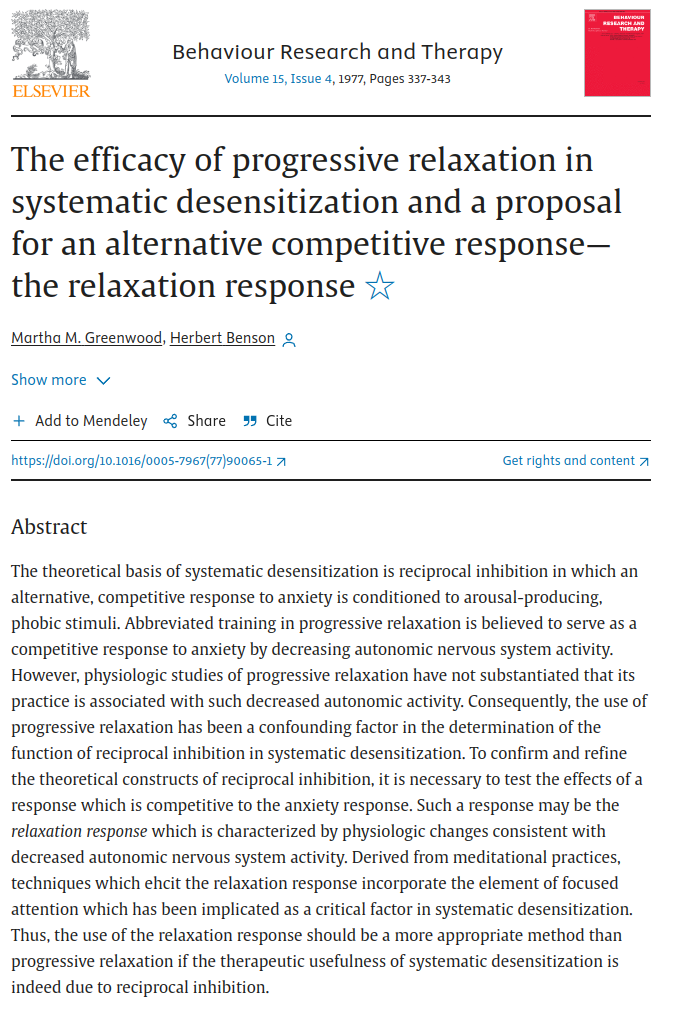The theoretical basis of systematic desensitization is reciprocal inhibition in which an alternative, competitive response to anxiety is conditioned to arousal-producing, phobic stimuli. Abbreviated training in progressive relaxation is believed to serve as a competitive response to anxiety by decreasing autonomic nervous system activity. However, physiologic studies of progressive relaxation have not substantiated that its practice is associated with such decreased autonomic activity. Consequently, the use of progressive relaxation has been a confounding factor in the determination of the function of reciprocal inhibition in systematic desensitization. To confirm and refine the theoretical constructs of reciprocal inhibition, it is necessary to test the effects of a response which is competitive to the anxiety response. Such a response may be the relaxation response which is characterized by physiologic changes consistent with decreased autonomic nervous system activity. Derived from meditational practices, techniques which elicit the relaxation response incorporate the element of focused attention which has been implicated as a critical factor in systematic desensitization. Thus, the use of the relaxation response should be a more appropriate method than progressive relaxation if the therapeutic usefulness of systematic desensitization is indeed due to reciprocal inhibition.
The efficacy of progressive relaxation in systematic desensitization and a proposal for an alternative competitive response—the relaxation response
Publication
Behavior Research and Therapy
15(4),pp. 337-343
Abstract
Web and Email Links
Related Listings
Journal
Psychiatry
In the Western world today, there is a growing interest in nonpharmacological, self-induced, altered states of consciousness because of their alleged benefits of better mental and physical health and improved ability to deal with tension and stress. During the experience of one of these states, individuals claim to have feelings of increased creativity, of infinity, and of immortality; they have an evangelistic sense of mission, and report that mental physical suffering vanish (Dean). […]
Journal
Nature Scientific Reports
Intelligence is a fundamental ability that sets humans apart from other animal species. Despite its importance in defining human behaviour, the neural networks responsible for intelligence are not well understood. The dominant view from neuroimaging work suggests that intelligent performance on a range of tasks is underpinned by segregated interactions in a fronto-parietal network of brain regions. Here we asked whether fronto-parietal interactions associated with intelligence are ubi […]
Journal
Behavior Research and Therapy
In this study, Herbert Benson's (1975) Relaxation Response Meditation program was tested as a possible treatment for Irritable Bowel Syndrome (IBS). Participants were 16 adults who were matched into pairs based on presence of Axis I disorder, primary IBS symptoms and demographic features and randomized to either a six week meditation condition or a six week wait list symptom monitoring condition. Thirteen participants completed treatment and follow-up. All subjects assigned to the Wai […]

